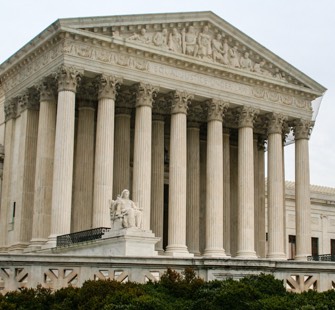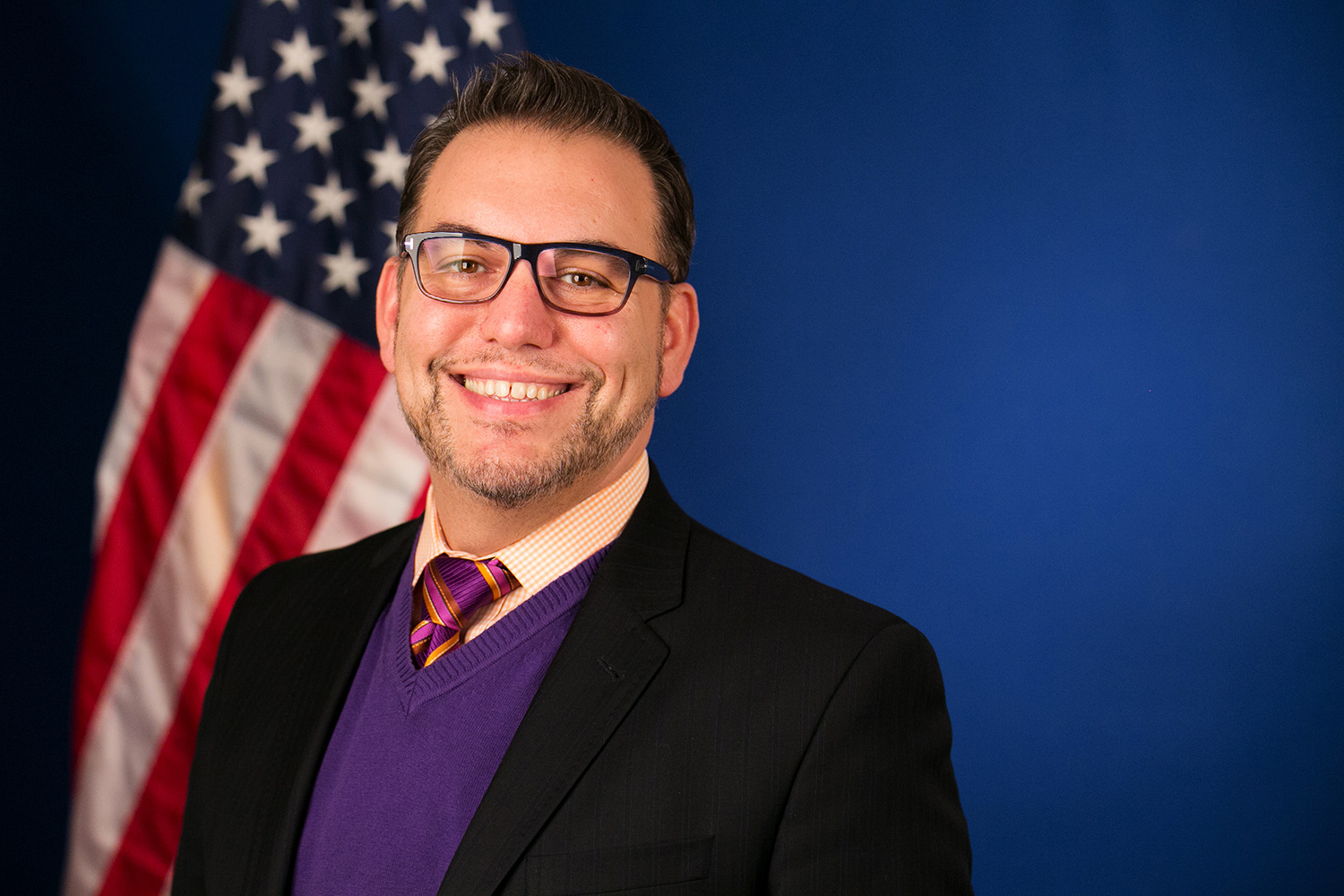Another patent reform advocate to retire from House of Representatives
Congressman Darrell Issa (R-CA), has announced that he will not seek re-election in 2018 and will retire from Congress. Issa, who currently chairs the House’s Judiciary Committee’s Subcommittee on Courts, Intellectual Property and the Internet, has been an outspoken advocate for the need for more patent reform.
Issa’s decision not to seek re-election means that the three most ardent Republican supporters of patent reform in the House will not return for the 116th Congress in January 2019. House Judiciary Chairman Bob Goodlatte (R-VA) announced his retirement in November 2017. Former House Judiciary Chairman and co-sponsor of the America Invents Act (AIA) Congressman Lamar Smith similarly announced his retirement in November 2017.
If Republicans hold on to a majority in the House, it seems likely that Congressman Doug Collins (R-GA) will take over as Chair of the House IP Subcommittee. Collins, an ally to inventors and creators, is currently Vice-Chair of the House IP Subcommittee.
While many patent owners and independent inventors will celebrate Issa’s decision to retire, his legacy on patent issues is a complicated one.
“As a patent owner himself, Chairman Issa understood the importance of a strong IP system,” said Todd Dickinson, former Director of the United States Patent and Trademark Office and current partner at Polsinelli. “While some differed with him on his approach to specific reforms, his heart was always with the system, so losing someone who knew the patent system personally will be a loss.”
Whether Issa was a hero or villain on matters of patent reform will largely be in the eye of the beholder. Many large corporations — such as Google, Cisco and J.C. Penney — have continued to seek additional patent reform ever since the AIA was signed by President Obama in September 2011, and have found Issa to be a strong ally.
What is not open for debate, however, is Issa’s influence in a positive way on how the federal courts structurally handle and assign patent lawsuits. “He should specifically be remembered for initiating the legislation that ultimately lead to the judicial Patent Pilot Program, which has been a successful attempt to create focus and training among District Courts and their judges having a particular interest in patent cases,” Dickinson said.
Should the Democrats take the House of Representatives in the next election cycle probably either Congressman Jerrold Nadler (D-NY), who is the Ranking Member on the House Judiciary Committee, or perhaps Congresswoman Zoe Lofgren (D-CA), would become the new Chair of the House Judiciary Committee. Both Nadler and Lofgren have been supporters of patent reform efforts in the past. Congressman Hank Johnson (D-GA) is currently the Ranking Member on the Subcommittee on Courts, Intellectual Property and the Internet, and could perhaps ascend to Chair the House IP Subcommittee. Johnson has taken positions in the past favorable to patent owners, such as his Amendment that would have substantially changed the fee-shifting provisions of the Innovation Act.
PTO Director Nominee inches closer to confirmation
 Immediately prior to the holiday recess on Capitol Hill, Andrei Iancu (pictured left), President Trump’s nominee to become the new Under Secretary of Commerce for Intellectual Property and the Director of the United States Patent and Trademark Office, was unanimously approved by the Senate Judiciary Committee.
Immediately prior to the holiday recess on Capitol Hill, Andrei Iancu (pictured left), President Trump’s nominee to become the new Under Secretary of Commerce for Intellectual Property and the Director of the United States Patent and Trademark Office, was unanimously approved by the Senate Judiciary Committee.
“Mr. Iancu has a proven record in the field of intellectual property law,” Senator Chuck Grassley (R-IA) said moments before the vote. “He has an excellent academic and professional background in intellectual property law. He’s extremely knowledgeable about the patent system. He’s well respected in the legal community.”
“We congratulate Mr. Iancu on his support from the U.S. Senate Judiciary Committee to be Director of the U.S. Patent and Trademark Office,” said Innovation Alliance Executive Director Brian Pomper. “We believe he will heed the views of independent inventors, entrepreneurs, and various industry groups—all those that form our U.S. innovation ecosystem.” Pomper went on to urge the full Senate to approve the Iancu nomination as soon as possible. “We look forward to working with Mr. Iancu in creating a strong and stable U.S. intellectual property landscape for entities of all sizes, enabling the U.S. to reassert its position as an international leader in innovation,” Pomper said.
Favorably reporting Andrei Iancu to the full Senate for confirmation as Director of the USPTO is an important next step along the nomination path.
Iancu was originally nominated by President Trump in August 2017. The Senate Judiciary Committee held its hearing on his nomination on November 29, 2017, unanimously voting on December 14, 2017 to favorably report his nomination to the entire Senate for action. As of yet, there is no scheduled vote on the Iancu nomination in the Senate, although Senators are back from their holiday recess and have started taking up nominations. See Iancu Nomination Actions.
For more information on the Iancu nomination please see:
- USPTO Director Nominee Andrei Iancu has Confirmation Hearing
- Andrei Iancu submits questionnaire to Senate
- Trump Nominates Andrei Iancu for PTO Director
- Director Andrei Iancu’s Act One
01.12.18 | posts | Gene Quinn
SAS Institute v. Matal: Oral argument suggests a split at Supreme Court
 The United States Supreme Court heard oral arguments in SAS Institute v. Matal on Monday, November 27, 2017. This case should give the Supreme Court the opportunity to declare whether the Patent Trial and Appeal Board must issue a written decision covering all claims challenged in an inter partes review proceeding, and based on the oral argument transcript, the Court may also decide whether partial IPR institutions are permissible under the statute.
The United States Supreme Court heard oral arguments in SAS Institute v. Matal on Monday, November 27, 2017. This case should give the Supreme Court the opportunity to declare whether the Patent Trial and Appeal Board must issue a written decision covering all claims challenged in an inter partes review proceeding, and based on the oral argument transcript, the Court may also decide whether partial IPR institutions are permissible under the statute.
The issue specifically taken by the Supreme Court is as follows:
Does 35 U.S.C. § 318(a), which provides that the Patent Trial and Appeal Board in an inter partes review “shall issue a final written decision with respect to the patentability of any patent claim challenged by the petitioner,” require that Board to issue a final written decision as to every claim challenged by the petitioner, or does it allow that Board to issue a final written decision with respect to the patentability of only some of the patent claims challenged by the petitioner, as the Federal Circuit held?
12.20.17 | posts | Gene Quinn
PTO Update from John Cabeca, Silicon Valley Director
 Last week John Cabeca (left), Director of the Silicon Valley branch of the United States Patent and Trademark Office, delivered the Keynote Speech at the 2017 Annual Meeting of the Association of Intellectual Property Firms (AIPF) in San Francisco, California. What follows are several of the more interesting points Cabeca make during his 30-minute presentation.
Last week John Cabeca (left), Director of the Silicon Valley branch of the United States Patent and Trademark Office, delivered the Keynote Speech at the 2017 Annual Meeting of the Association of Intellectual Property Firms (AIPF) in San Francisco, California. What follows are several of the more interesting points Cabeca make during his 30-minute presentation.
“Typically it takes three months plus or minus a month, depending upon what Congress has on their schedule, but we look forward to having Mr. Iancu on board,” said Cabeca, when addressing the most common question he gets of late – when can we expect the new Director to be confirmed and in place.
Cabeca’s assessment on the Iancu timeframe is in keeping with everything I’ve been hearing. President Trump nominated Andrei Iancu to be the next Director of the USPTO on August 25, 2017. Perhaps Iancu will manage to find himself a part of some late-year nominee deal in the Senate, perhaps he will be held over for confirmation until early 2018. (more…)
09.22.17 | Patent Issues, posts, USPTO | Gene Quinn
A new PTO Director will face a patent system at a crossroads
 The U.S. patent system is at a crossroads. See The Top 3 Reasons the U.S. patent system is in decline. In both 2016 and 2017, the Chinese government made significant improvements to its patent rules and laws. See China relaxing barriers to software and business method patents. As the Chinese landscape for patents and innovation continues to improve, we have to consider that more innovation might move to China, as investors flee in search of better legal protections – protections necessary to justify the speculative investment in early-stage high-tech innovative companies.
The U.S. patent system is at a crossroads. See The Top 3 Reasons the U.S. patent system is in decline. In both 2016 and 2017, the Chinese government made significant improvements to its patent rules and laws. See China relaxing barriers to software and business method patents. As the Chinese landscape for patents and innovation continues to improve, we have to consider that more innovation might move to China, as investors flee in search of better legal protections – protections necessary to justify the speculative investment in early-stage high-tech innovative companies.
Time is of the essence for the U.S. patent system. The 2017 worldwide patent rankings of the U.S. Chamber of Commerce already shows the United States tumbling from 1st place into a tie for 10th place with Hungary.
With strong and principled leadership, it is not too late to turn the tide and restore the United States patent system to its former glory. With this in mind, I recommend in the strongest terms possible that the person selected as the next Director of the United States Patent and Trademark Office (USPTO) share a vision for a stronger U.S. patent system that is once again the envy of the world.
07.26.17 | Patent Issues, posts, USPTO | Gene Quinn


No Comments
02.7.18 | Patent Issues, posts | Gene Quinn